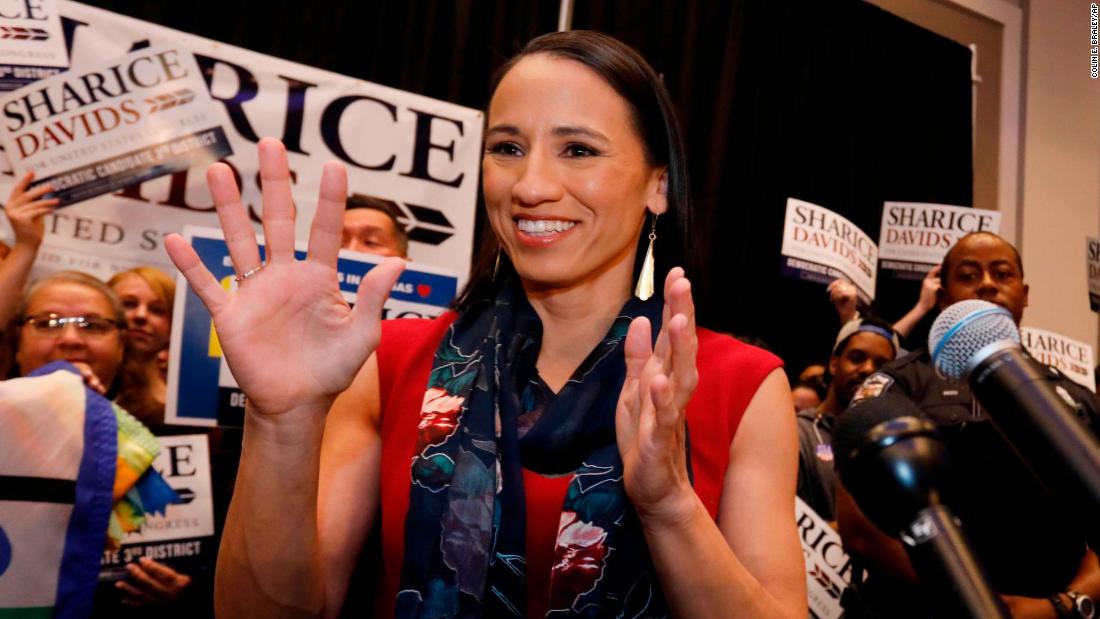
We can debate whether it was a Blue Wave. But in the US House of Representatives, at least, the popular vote margin -- at more than nine percentage points -- was larger than in the Newt Gingrich wave of 1994 and the Tea Party wave of 2014.
I call this torrent of inclusive populism "The Rainbow Wave." Here is why I am excited about this peek into the future of our nation and the Democratic Party:
- Michigan's Rashida Tlaib and Minnesota's Ilhan Omar, both Democrats, will be the first Muslim women in the House of Representatives.
- Sharice Davids of Kansas and Deb Haaland of New Mexico, also Democrats, will be the first Native American women in the House of Representatives.
- Colorado Democrat Jared Polis will be the nation's first openly gay governor. Sharice Davids, mentioned above, is also part of the LGBT community. Democrat Kyrsten Sinema still stands a chance of being the first openly bisexual senator.
- Ayanna Pressley will become the first black woman to represent Massachusetts in the House of Representatives, and Alexandria Ocasio-Cortez will be the youngest ever member of Congress.
- Veronica Escobar and Sylvia Garcia will be the first Latinas from Texas in the House of Representatives.
- Stacey Abrams, a black woman in the heart of the old Confederacy, conceivably has forced a runoff against Brian Kemp. She did this despite long lines, non-functioning polling machines, purged voters and other hallmarks of voter suppression.
- A bipartisan effort led to Florida voters striking down a Jim Crow-era law that barred convicted felons from voting for life. Thanks to the passage of Amendment 4, 1.5 million people who have paid their debt to society will now regain the right to vote.
- Democrats retook the Midwest. After Trump's shocking wins in places like Wisconsin, few suspected Democrats would win governorships and hold Senate seats in places like Michigan, Wisconsin and Pennsylvania.
- 115 women won national office, as of the last count. 42 are women of color. And four so far are veterans. All notable increases over the previous Congress.
- Florida's Andrew Gillum came closer to winning his race for governor than did the Democrat in traditional swing state Ohio. I will admit it was a heartbreaking loss. Combined with US Senate defeats, I was feeling sad earlier in the evening. But reflecting on two black progressives being competitive in the former Confederacy gives me hope for the future of these rapidly changing states.
- Campaigns like those of Gillum, Abrams and Beto O'Rourke demonstrated that knocking on doors and talking to neighbors matters more than television ads -- and refusing corporate cash is wildly popular. Democrats can learn key lessons from their strengths even in defeat.
- Ballot initiatives. Voters in Utah, Idaho and Nebraska voted to expand Medicaid. Michigan legalized marijuana. Nebraska and Missouri raised the minimum wage. On criminal justice, Amendment 11 in Florida will make reforms retroactive, Louisiana now requires unanimous jury verdicts in felony cases, and Colorado voters abolished unpaid prison labor.
- The grassroots energy paid off. All of the hard work calling and texting and talking to friends and neighbors -- from groups like Win Justice, the Working Families Party, the Movement Voter Project and the Black Voters Matter Fund -- produced a popular vote margin for the US House that is bigger than the 2006, 2010, and 2014 waves. Only gerrymandering kept our Rainbow Wave from giving us even more seats.
- Democrats are positioned to hold Trump accountable. That means investigations into unconscionable policies like tearing children away from their parents at the borders. It also means learning how much he is personally profiting from the presidency.
- Democrats can call Trump's bluff. Under a Republican Congress, Trump could claim to support raising the minimum wage or cracking down on pharmaceutical companies but never had to walk the walk. Now he will have nowhere to hide.
- Nothing on the list above would have happened without the youth. Young people registered and voted in record numbers -- in some states doubling 2014 numbers. They waited in ridiculous lines and struggled with deliberate voter suppression (both problems it is time to solve). Their hard work paid off; the most diverse generation in American history sees voting as one of many tools and declared themselves ready to use it to transform America.
Blue Wave or not -- it for sure was a Rainbow Wave.
No comments:
Post a Comment